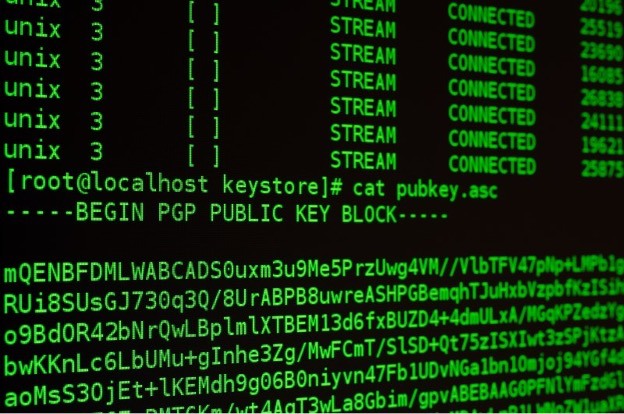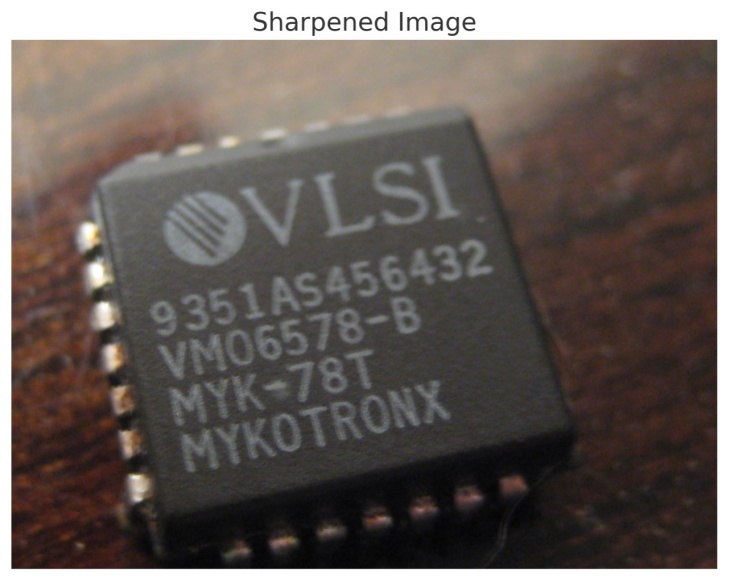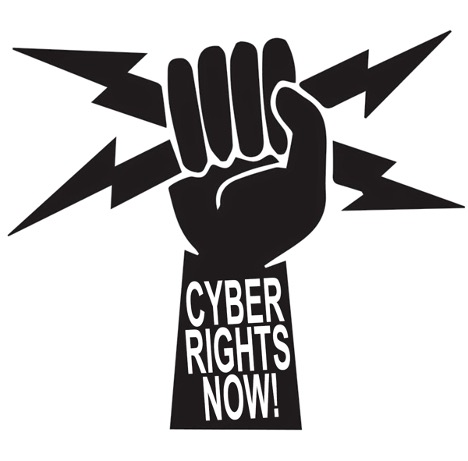
Phil Zimmermann was a radical.
As an anti-nuclear activist, Zimmermann was troubled that the U.S. and Soviet Union had stockpiled enough nuclear weapons to each destroy the other. This idea of Mutually Assured Destruction (MAD), he believed, was indeed mad. It meant the world was constantly on the brink of a nuclear catastrophe.
Zimmermann was also a computer programmer. If the grassroots peace movement had a method for secure communication, he reasoned, citizens would be better equipped to organize and protest, without interference or surveillance from the government.
He developed a piece of software that would give ordinary citizens military-grade privacy. They could encrypt emails, spreadsheets, and documents with software that would take a supercomputer billions of years to crack.
In the understatement of the year, he called it “Pretty Good Privacy.”
There were many similarities between PGP and today’s cryptocurrencies: they both use public and private keys. They both let users trust each other without a centralized authority. And they both have terrible user interfaces.

Zimmermann sent his first release of PGP to a friend, who uploaded it to an early message board called Peacenet, which helped organize peace activists around the world. Other friends began releasing it on Usenet, the precursor to the Web, where the software quickly found a following, especially in countries with oppressive regimes.
Before long, the U.S. government came calling.
Cryptography is a Weapon
Ironically for a peace activist, Zimmermann had accidentally created a weapon.
The government began investigating him for “munitions export without a license.” Cryptography systems with less than 40 bits (i.e., easier to crack) could be exported outside the U.S., but PGP used 128 bits or more. In U.S. export law, PGP was considered a weapon.
Zimmermann was one step ahead of the government, though. He published the entire source code of PGP in a hardback book, published by MIT Press, which made his invention available to anyone who wanted to scan every page, or type it in by hand, then compile it.
Cryptography might be illegal to export, but books were not.
Fortunately for Zimmermann, the battle over cryptography was heating up on other fronts. The U.S. tech industry wanted to include industrial-strength encryption into many products: phones, fax machines, operating systems, databases. Forget the citizens; businesses required it.
The same export law that the government brought against Zimmermann would hobble U.S. companies trying to export crypto products around the world. As the tech industry’s cries grew louder, the U.S. finally proposed a solution: the Clipper chip.

The Clipper Chip Debacle
Introduced during the Clinton administration, the Clipper chip was the government’s idea of a compromise. It was a computer chip with extremely strong cryptography, with a “back door” that could allow the government to break in, if needed.
When each Clipper chip was issued at the factory, it came with a companion key that the government would hold in escrow. If the government needed to eavesdrop on a suspected terrorist, it could get a court order to retrieve the keys, then break into the terrorist’s secure phone.
There was strong pushback against the Clipper chip, especially among libertarians and privacy activists who later became some of the biggest proponents of bitcoin. It required absolute trust in the government—and the government’s ability to not accidentally leak all those keys.
The Clipper chip was a disaster: the only organization that bought a substantial amount was the Department of Justice. But it laid bare the tension between citizens who wanted privacy, and a government that wanted the ability to break that privacy, just in case.
Today, PGP has diversified into a wide variety of encryption applications that can protect file systems, servers, networks, and much more. And it paved the way for encryption products that we use all the time, such as the https: in your browser that allows you to securely buy stuff from Amazon, or send funds via Venmo.
At the time, it was all wildly controversial. Today, it’s hard to understand what the fuss was about.
The lesson is that new technology takes time.
Especially when it bumps up against the powers of government.

Crypto Threatens Governments
In the same way that PGP threatened the ability of governments to watch the communication of suspected criminals, cryptocurrencies threaten the ability of governments to watch the money flow of suspected criminals.
We all know that bitcoin is a terrible choice for criminals, because every transaction is public, for the world to see. But crypto mixers like Tornado Cash are being banned by the U.S. government, because they can securely hide the origins of crypto transactions.
According to the government, this can allow “bad guys” to move money and hide their tracks.
But remember, Zimmermann wasn’t a bad guy: he was a peace activist. And his concerns were that anti-nuclear demonstrators could also be targeted by governments, because they were threatening the power of the state.
No one wants terrorists to run free … but we all want the freedom to protest. It’s this pull between the power of governments and the rights of citizens that gave birth to PGP, and years later, to bitcoin.
Cryptocurrencies are threatening to governments in another way: the more people who invest in them, the more entwined DeFi becomes with TradFi, the more crypto threatens national economies (and, by extension, the global economy).
(Indeed, that’s the TLDR summary of the warning from global bankers that I wrote about just last week.)
This makes crypto investors feel like criminals, even if what we’re doing – buying and holding bitcoin, plus a small number of high-quality digital assets, for the long term – is perfectly legal.
Whenever you feel stigma for mentioning the word “crypto,” whenever people look at you sideways because you’ve invested in bitcoin, remember the PGP drama. It’s really helpful for putting it all in context.
The takeaway: technology takes time.
Especially when it threatens governments.
One Day, It’s All Just Common Sense
Today, no one thinks about entering your credit card into a browser as “exporting weapons.”
Great and disruptive technologies take time to catch on. They upend the way that things are done. If they’re radical enough, first the government has to get used to it (and nothing happens quickly in government).
Then, once the way is clear, companies have to follow. With crypto, we’re talking about banks and financial institutions, and they don’t move much faster than government.
But over time, these technologies move from being a novelty to “the way things are done.” They become common sense.
In the beginning, strong encryption seemed like nonsense. But as it caught on, it just became common sense.
Today, encryption is invisible, woven into products you use every day. You don’t even think about it, you just know that criminals aren’t going to intercept your PayPal transaction. Zimmermann and many others blazed the trail, but today we all take it for granted.
In the depths of a crypto bear market, it can feel like this industry is spinning its wheels. Just remember that this is the usual playbook for groundbreaking technologies, especially when cryptography is involved.
Be patient, crypto investors. Technology takes time.
But when it finally gets there, it’s everywhere.
Over 50,000 investors get this column every Friday. Click to subscribe and join the tribe.
- SEO Powered Content & PR Distribution. Get Amplified Today.
- PlatoData.Network Vertical Generative Ai. Empower Yourself. Access Here.
- PlatoAiStream. Web3 Intelligence. Knowledge Amplified. Access Here.
- PlatoESG. Automotive / EVs, Carbon, CleanTech, Energy, Environment, Solar, Waste Management. Access Here.
- PlatoHealth. Biotech and Clinical Trials Intelligence. Access Here.
- ChartPrime. Elevate your Trading Game with ChartPrime. Access Here.
- BlockOffsets. Modernizing Environmental Offset Ownership. Access Here.
- Source: https://www.bitcoinmarketjournal.com/technology-takes-time/
- :has
- :is
- :not
- :where
- $UP
- 000
- 40
- 50
- a
- ability
- About
- about IT
- Absolute
- activists
- actual
- administration
- against
- ahead
- All
- allow
- allows
- also
- Amazon
- among
- amount
- an
- and
- Another
- anyone
- applications
- ARE
- around
- AS
- Assets
- assured
- At
- authority
- available
- Bad
- bankers
- Banks
- Battle
- BE
- Bear
- Bear Market
- became
- because
- become
- becomes
- began
- Beginning
- being
- believed
- Better
- between
- Biggest
- billions
- birth
- Bitcoin
- board
- book
- Books
- both
- bought
- Break
- brink
- brought
- browser
- businesses
- but
- buy
- Buying
- by
- called
- calling
- came
- Campaign
- CAN
- card
- Cash
- Catch
- caught
- centralized
- chip
- choice
- Citizens
- clear
- code
- Column
- Common
- Common Sense
- Communication
- Companies
- companion
- compromise
- computer
- Concerns
- considered
- constantly
- context
- controversial
- could
- countries
- Court
- crack
- created
- credit
- credit card
- Criminals
- crypto
- Crypto bear market
- Crypto investors
- crypto transactions
- cryptocurrencies
- cryptography
- cyber
- databases
- day
- DeFi
- Department
- department of justice
- Depths
- destroy
- developed
- Developer
- digital
- Digital Assets
- disaster
- disruptive
- diversified
- documents
- doing
- done
- Dont
- Drama
- during
- e
- each
- Early
- easier
- economies
- economy
- emails
- encryption
- enough
- entering
- Entire
- equipped
- escrow
- especially
- Even
- Every
- every day
- everywhere
- export
- extension
- extremely
- factory
- faster
- fax
- feel
- File
- Finally
- financial
- Financial institutions
- First
- flow
- follow
- following
- For
- found
- Free
- Freedom
- Friday
- friend
- friends
- from
- funds
- gave
- get
- Give
- Global
- Global economy
- going
- good
- Government
- Governments
- granted
- grassroots
- grew
- groundbreaking
- Guy
- had
- hand
- happens
- Hard
- Have
- he
- helped
- helpful
- Hide
- high-quality
- him
- his
- hold
- holding
- HTTPS
- i
- idea
- if
- Illegal
- in
- include
- indeed
- industry
- industry’s
- institutions
- interfaces
- Interference
- into
- Invention
- Invest
- invested
- investigating
- Investors
- involved
- Issued
- IT
- ITS
- join
- jpg
- just
- Justice
- Key
- keys
- Know
- Last
- later
- Law
- leak
- Legal
- less
- lesson
- let
- Libertarians
- License
- like
- Long
- Look
- Machines
- made
- magazine
- MAKES
- many
- Market
- max-width
- meant
- message
- method
- might
- MIT
- MIXERS
- money
- more
- move
- movement
- much
- mutually
- National
- needed
- networks
- New
- no
- nothing
- novelty
- now
- nuclear
- number
- of
- on
- once
- ONE
- only
- operating
- operating systems
- or
- order
- ordinary
- organization
- origins
- Other
- Others
- outside
- over
- page
- patient
- PayPal
- peace
- People
- perfectly
- phone
- phones
- piece
- plato
- Plato Data Intelligence
- PlatoData
- plus
- power
- powers
- precursor
- press
- privacy
- private
- Private Keys
- Products
- Programmer
- proponents
- proposed
- protect
- protest
- public
- published
- Putting
- quickly
- radical
- really
- regimes
- release
- releasing
- remember
- required
- rights
- Run
- s
- same
- scan
- secure
- securely
- see
- seemed
- send
- sense
- sent
- Servers
- sideways
- similarities
- small
- Software
- solution
- some
- Source
- source code
- State
- Step
- strong
- subscribe
- substantial
- such
- SUMMARY
- supercomputer
- surveillance
- Systems
- Take
- takes
- talking
- targeted
- tech
- tech industry
- Technologies
- Technology
- term
- terrible
- terrorist
- than
- that
- The
- The State
- the world
- their
- Them
- then
- There.
- These
- they
- things
- think
- Thinks
- this
- those
- though?
- threaten
- threatens
- time
- to
- today
- today’s
- tornado
- Tornado Cash
- TradFi
- trail
- transaction
- Transactions
- treasury
- Trust
- trying
- type
- u.s.
- U.S. government
- understand
- union
- uploaded
- use
- used
- User
- users
- variety
- Venmo
- via
- want
- wanted
- wants
- warning
- was
- Watch
- Way..
- we
- Weapons
- web
- were
- What
- when
- whenever
- which
- WHO
- wide
- with
- without
- Word
- world
- would
- would give
- wrote
- year
- years
- You
- Your
- zephyrnet












